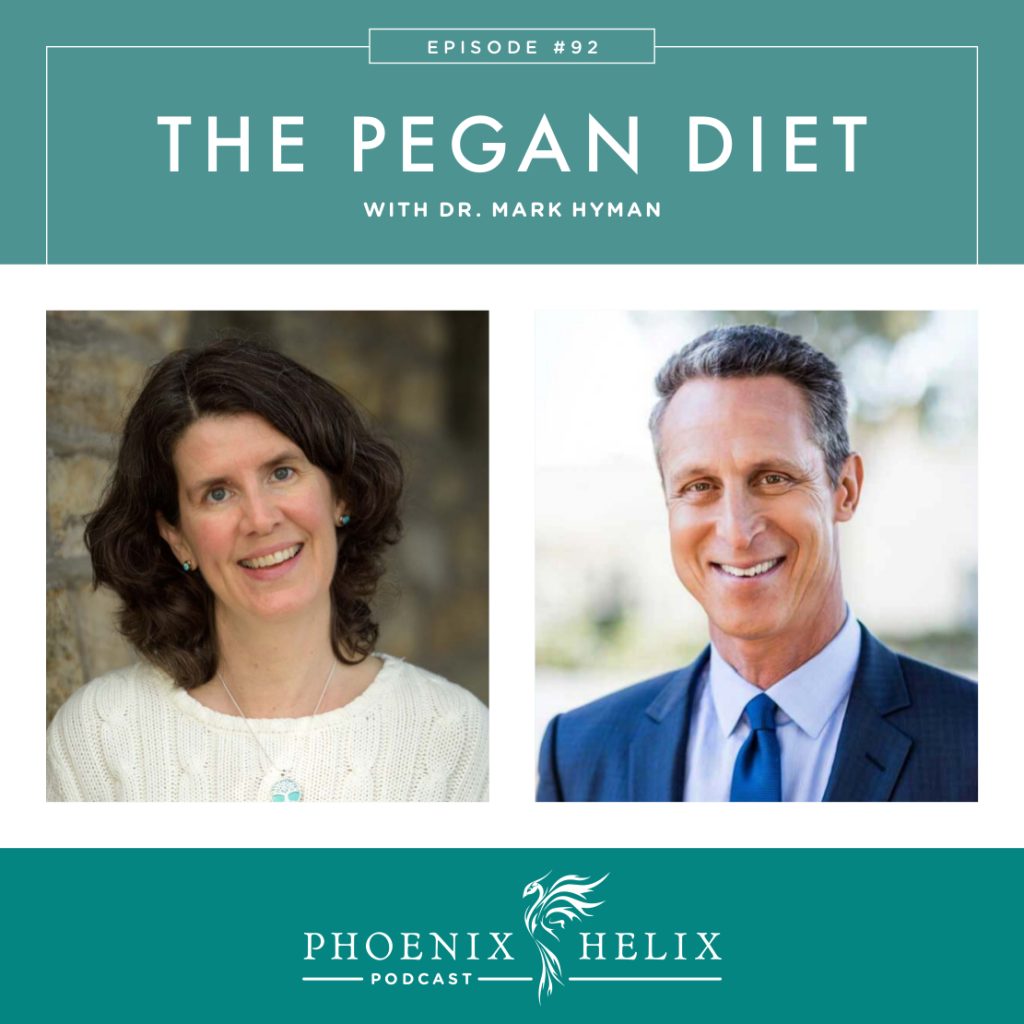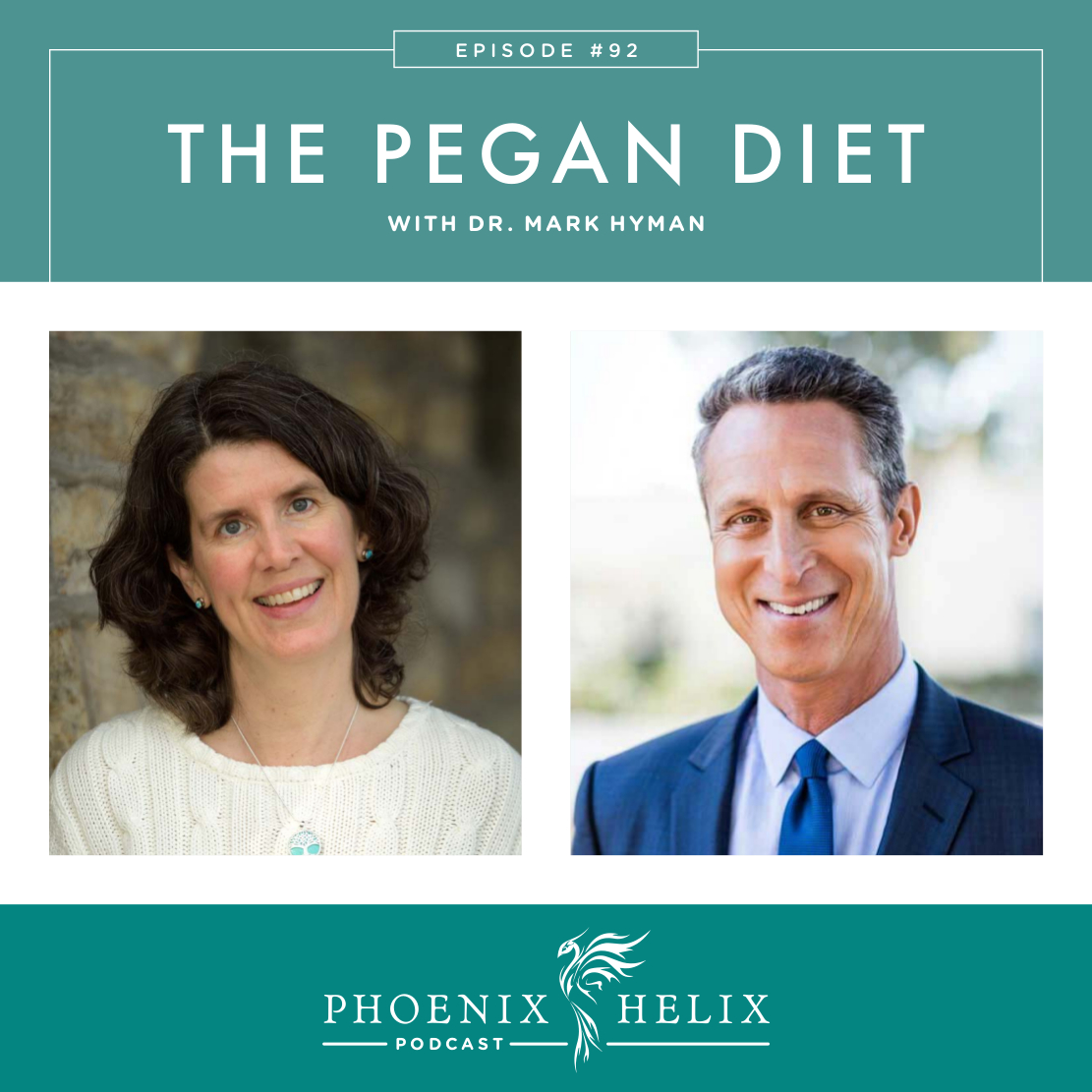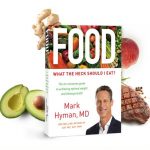
What Is the Pegan Diet?
Dr. Mark Hyman is one of the most well-known names in the functional medicine movement. He is a practicing physician, a 10-time New York Times bestselling author, and an internationally recognized leader, speaker, educator, and advocate. He’s recently published a new book called, FOOD: What the Heck Should We Eat? In it, he cuts through the confusion of conflicting dietary studies, and tries to simplify healthy nutrition choices. He has coined the term “peganism” and in this podcast, we talk about what that means, alongside other tips for autoimmune health.
Listen to the Show
- Subscribe to my podcast through your favorite podcast app: iTunes, Stitcher, Google, TuneIn, Spotify, Amazon, etc.
- You can also listen to the episode right here through the player below, and if you subscribe to my newsletter you’ll get notified of future episodes.
Podcast: Play in new window | Download
Show Notes
- Intro (0:00)
- Thank You to our Podcast Sponsor – Paleo on the Go (1:49)
- A frozen meal delivery service, they have a large menu of items for the paleo autoimmune protocol (AIP).
- Use the code PHOENIX for 10% off your first order.
- Meet Dr. Hyman (3:56)
- Dr. Mark Hyman is a practicing physician, a 10-time New York Times bestselling author, and an internationally recognized leader, speaker, educator, and functional medicine advocate. He is a Chairman of the Institute for Functional Medicine, Director of the Cleveland Clinic Center for Functional Medicine.
- He has had two severe health crises in his own life.
- The first happened over 20 years ago, when mercury poisoning led to symptoms of chronic fatigue, myositis, digestive issues, insomnia, and trouble with mood and cognitive function. That’s what actually led him into the field of functional medicine. When conventional medicine didn’t improve his symptoms, he had to look elsewhere.
- His second health crisis happened a year ago. He had a number of things happen at once: mold exposure, a root canal infection, a bad reaction to the antibiotics, and a resulting C. difficile infection. He ended up being bedridden for 5 months. His normal interventions didn’t restore his health, so he pursued some more aggressive treatments that eventually got him back on his feet. These included ozone therapy, hyberbaric oxygen therapy, IV vitamin C and glutathione, and stem cell treatment.
- What Is the Pegan Diet? (7:17)
- Named for the intersection of Paleo and Vegan diets, it’s Dr. Hyman’s food recommendations for optimal health.
- It’s very similar to Dr. Terry Wahls and Dr. Sarah Ballantyne’s recommendations. Focus on nutrient density, and avoid inflammatory foods.
- Eat a low-sugar, low-glycemic diet.
- 1/2 to 3/4 of your plate should be filled with vegetables.
- Avoid refined and processed oils, and choose healthy fats instead: olive oil, ghee, coconut oil, avocados, nuts, seeds, and the fats naturally contained in pastured eggs, grass-fed meats, and low-mercury seafood.
- Include 4-6 ounces of high-quality protein at each meal.
- Ideally choose foods that are organic, local, fresh, and low in pesticides, hormones, antibiotics, or GMOs.
- No chemicals, no fake food. There are 3,000 chemicals currently allowed in processed foods.
- Dairy isn’t a health food. If you choose to eat it, grass-fed or goat dairy are the best choices.
- Nuts and seeds are healthy options.
- If you eat grains, choose gluten-free.
- If you eat legumes, keep quantities small.
- Modifications for autoimmune disease: No grains. No legumes. No dairy. And an elimination diet like the AIP might be helpful.
- This is a template. Personalize the diet for you.
- Resources:
- Biggest Mistakes People Make On the Paleo Diet (12:01)
- Too many sweets.
- Too many paleo packaged foods.
- Too much meat and not enough vegetables. Caveman often ate up to 800 species of plants each year. Treat meat like a condiment. Resource: A to Z Vegetable Recipe Roundup.
- Let’s Talk Protein (13:05)
- Eat 4-6 ounces per meal (filling the rest of your plate with vegetables and a little healthy fat).
- High quality protein sources: grass-fed meat, pastured poultry, low-mercury seafood, pastured eggs, and small amounts of nuts and seeds.
- When you hear Dr. Hyman say he only eats 4-6 ounces meat daily, he meets the rest of his protein needs from the other categories, being sure to get adequate protein at every meal.
- Best Foods for Autoimmune Health (14:23)
- A wide diversity of vegetables. Eat the rainbow.
- Fatty fish high in omega 3 fatty acids: sardines, mackerel, herring.
- Herbs and spices, especially garlic, ginger and turmeric.
- Low glycemic foods. (Grains, legumes, sugar and starch all raise blood sugar and inflammation. If you eat too many of these foods, it will be a healing obstacle. This is true even if you eat nutrient-dense foods alongside them.)
- The Feel Good Wheel (16:31)
- A diagram created by Dr. Hyman and his team, it includes 8 aspects to a balanced and healthy life: Nutrition, Body & Movement, Purpose, Mindset, Community, Spirit, Emotional Health, and Relationships.
- We plan our vacations better than we plan our lives. The more we structure our life to support our health and remove influences and obstacles that derail our health, the easier it is to maintain health. This is the secret to healthy habits. For example, if you stock your kitchen with healthy food and remove the unhealthy choices, it’s easier to maintain a healthy diet. When it comes to exercise, what do you enjoy, and where is the easiest place to fit it into your schedule? Do you structure your evenings to help you sleep, or do things that keep you up? Etc.
- The Feel Good Wheel can be a great exercise in self-reflection. Where are your self-care practices strong? Which need work? It will be different for each one of us. If you feel overwhelmed, Dr. Hyman recommends starting with food, because a good diet affects change in every area on the wheel. Then, when refining your health, you can choose small steps in other areas that over time can lead to larger changes.
- The Feel Good Summit is an immersive retreat June 7-10, 2018. It will focus on all of these aspects of health.
- A Functional Medicine Approach to Autoimmune Disease (23:34)
- Functional medicine looks for root causes, rather than symptom suppression. The causes are different for everyone, so the top tests Dr. Hyman chooses depends on the patient’s history and symptoms.
- Top 3 things that trigger autoimmunity:
- Diet: especially intolerance to gluten and dairy, but also grains, legumes, and nightshades. An AIP elimination diet can be helpful in isolating food sensitivities.
- Microbiome health: 60% of the immune system lies in the gut, so leaky gut, gut infections, overgrowth, and gut inflammation can all kick the immune system into overdrive.
- Toxins: such as heavy metals and pesticides.
- Qualities of an Effective Doctor-Patient Partnership (26:57)
- A doctor who listens and cares, and takes a detailed health history to discover each patient’s story.
- A client who is willing to change, and is committed to following the treatment plan. In functional medicine, it’s about making life changes, not just taking a pill.
- Resource: Episode 67 – Building Effective Doctor-Patient Relationships.
- Why Is Nutrition So Confusing? (29:42)
- Nutrition studies are often funded by food companies looking for a specific result.
- Food lobbies have a huge influence on government food policy and diet education, often contrary to what the science says.
- There’s also a wide variety of quality among scientific studies, and very few prove cause and effect. Most studies on nutrition show possible association and correlation, but there are multiple variables.
- Nutrition headlines rarely tell the whole truth.
- In his book, FOOD: What the Heck Should I Eat?, Dr. Hyman evaluates the science for each food group and shows what has been proven, what hasn’t, and guides people to make the healthiest choices.
- Outro (32:44)
- You can learn more about Dr. Hyman and the resources discussed today through his websites: Dr. Hyman, the Feel Good Summit, and Food the Book. While he is no longer accepting new patients, you can work with his colleagues at The Ultra Wellness Center.
- Eileen (your podcast host) is the author of multiple books, written to help people thrive with autoimmune disease. Learn more on the Books Page.
- If you like this podcast, follow or subscribe through your favorite podcast app. You can also subscribe to Eileen’s biweekly newsletter.
- Check out the entire archive of podcast episodes.
You May Also Be Interested In
Spreading the Word
If you like the podcast, please leave a positive review in iTunes. It would mean the world to me, and also helps others find the podcast. Here are some quick instructions using your iPhone:
- If you are already subscribed to my podcast: (1) Click the purple podcast icon. (2) At the bottom of the screen, click Library. (3) At the top of the screen, click Shows. (4) Click the Phoenix Helix podcast image. (5) Scroll down the page, and you’ll see Ratings and Reviews. Scroll down a little bit more and click on Write a Review. This will bring up the review screen. Tap 5 stars (if you love the podcast), and then click in the title box, and it will bring up the keyboard. Enter a title and short review. (6) Click Send in the upper right corner. (7) Thank you! Positive reviews give the podcast a higher search ranking in iTunes, helping people find it and letting them know it’s a quality podcast and worth their time to listen.
- If you haven’t subscribed to my podcast: (1) Click the purple podcast icon. (2) In the lower right corner, click the magnifying class. (3) Type Phoenix Helix in the search box. (4) Click the podcast cover in the Show list. (5) If you’d like to subscribe, click the + sign at the top of the screen. (6) To write a review, scroll down the page, and you’ll see Ratings and Reviews. Scroll down a little bit more and click on Write a Review. This will bring up the review screen. Tap 5 stars (if you love the podcast), and then click in the title box, and it will bring up the keyboard. Enter a title and short review. (7) Click Send in the upper right corner. (8) Thank you! Positive reviews give the podcast a higher search ranking in iTunes, helping people find it and letting them know it’s a quality podcast and worth their time to listen.









thanks so much Eileen
Hi Eileen, this is off topic, but can you please tell me what the issue is with licorice root and autoimmune disease ? When can one reintroduce it and why is it bad ? Thanks
It’s an immune system stimulator, Danielle. This is true for many medicinal herbs. Whenever you are ready for reintroductions in general, you can try reintroducing licorice root. Use the same process described in my guide that you would use for food, but substitute the tea or supplement. Be sure to do it as its own reintroduction (separate from other foods), so you can accurately measure your body’s response.
Just wanted to say THANK YOU for this awesome blog, podcast and everything you do to spread the word to help people live an optimal quality of life. Mark Hyman is great.
Thanks, Rebecca! Comments like this warm my heart.